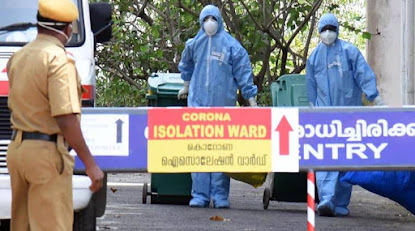Some COVID Thoughts

By D Dhanuraj A PDS Discussion (May 23) One could see long queues these days not only in front of the BEVCO outlets but also in front of the Ration Shops (PDS). As a public policy researcher, I was curious to understand the reasons for such a long tail in front of these shops. I could see people come by car (even in premium cars) and two- wheelers and stand in the line holding an umbrella (it was drizzling at that time). I talked to a few and got a mixed response. Some of them believe that it is their right to buy ration when the provisions are given free by the government; some are not sure about their income in the coming months, hence, storing it in case of adverse situations; some people want to buy these provisions to acknowledge and thank Chief Minister and the Kerala Government for their excellent work; some think it is a superb work of the Prime Minister and the Union Government and so particular not to give room for the State machinery to sell them in the black market later; s





